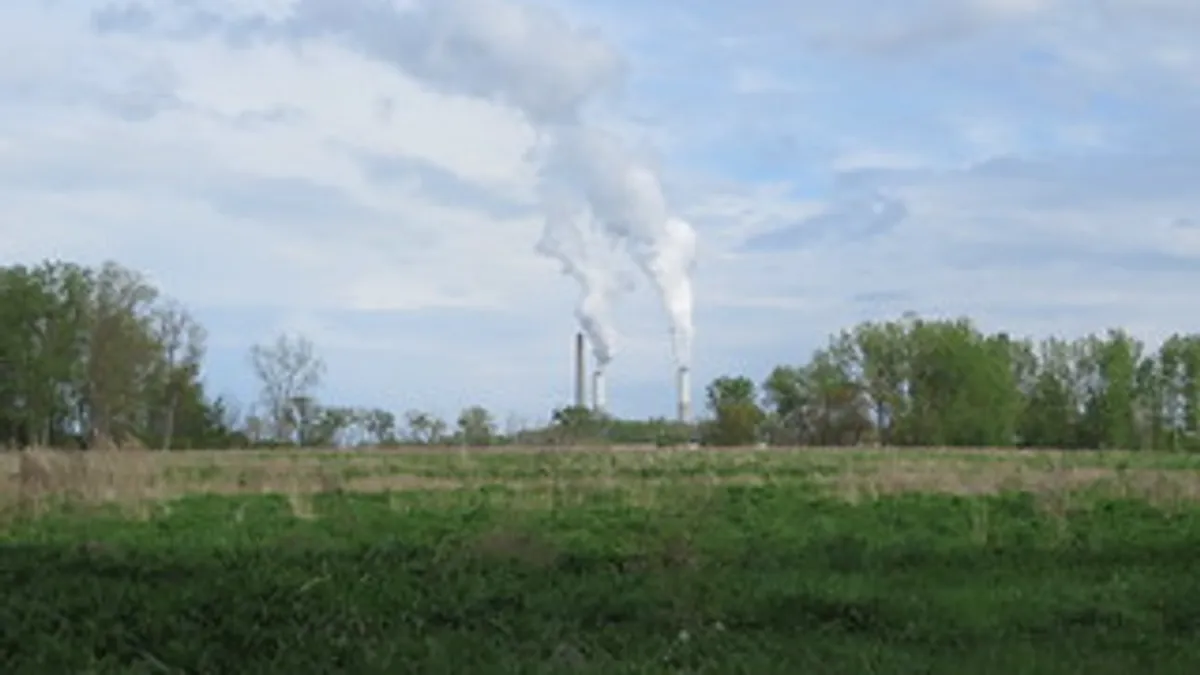Dive Brief:
- Michigan regulators found "fundamental flaws" and "significant deficiencies" in DTE Energy's integrated resource plan (IRP), leading them to recommend removal of all supply-side resource additions from the utility's proposed long-term strategy.
- The Public Service Commission (PSC) recommended DTE issue a request for proposals for new electric generation, and boost proposed energy efficiency targets.
- Regulators gave the utility until March 21 to file a revised plan and said the commission "will be left with little alternative but to deny the IRP," should the utility fail to adopt recommended changes. DTE is preparing a response.
Dive Insight:
DTE's long-term plan proposed continuing to operate its coal-fired Belle River plant for another decade, noting that the utility has no near-term "persistent capacity need" until 2030. Regulators balked at that, and directed DTE to seek alternatives in an accelerated renewable energy plan (REP).
The PSC's order directs the utility to file its next REP no later than April 1. The utility's current plan is to retire Belle River Units 1 and 2 in 2029 and 2030, respectively.
"The Commission recognizes that, with this decision, many of the approvals that DTE Electric thought would be forthcoming via an IRP order will not occur and will need to be considered in other proceedings, particularly the company's REP proceeding," regulators wrote.
"The company may soon find that it needs to seek the approval of wind or solar contracts, which cannot be approved in the absence of an approved REP," the order said.
In a statement, DTE said the commission's decision is "an important step in this iterative process and we are evaluating the recommendations in preparation for filing our response."
According to the utility, since 2009 it has been the largest investor in renewables in Michigan and has driven $3 billion in solar and wind energy infrastructure and investments. The utility says it plans to triple its renewable energy assets over the next decade.
DTE is aiming to cut its carbon emissions 50% by 2030 and 80% by 2040, relative to 2005 levels.
The PSC's order also calls for DTE to raise its energy efficiency targets to 1.75% in 2020 and 2% in 2021. The utility had proposed levels of 1.65% in 2020 and 1.75% in 2021.
Clean energy advocates celebrated the commission's decision.
"The commission appropriately recognized that DTE's plan needs improvement, and the onus is now on the company to address its flawed proposal," James Gignac, lead Midwest energy analyst for the Union of Concerned Scientists, said in a statement.
"Michigan's long-term energy planning process requires evaluation of all resource options to benefit customers and communities, not just a reflection of what utility companies are already planning to do," said Gignac.
Comments on the commission's order are due March 6.














